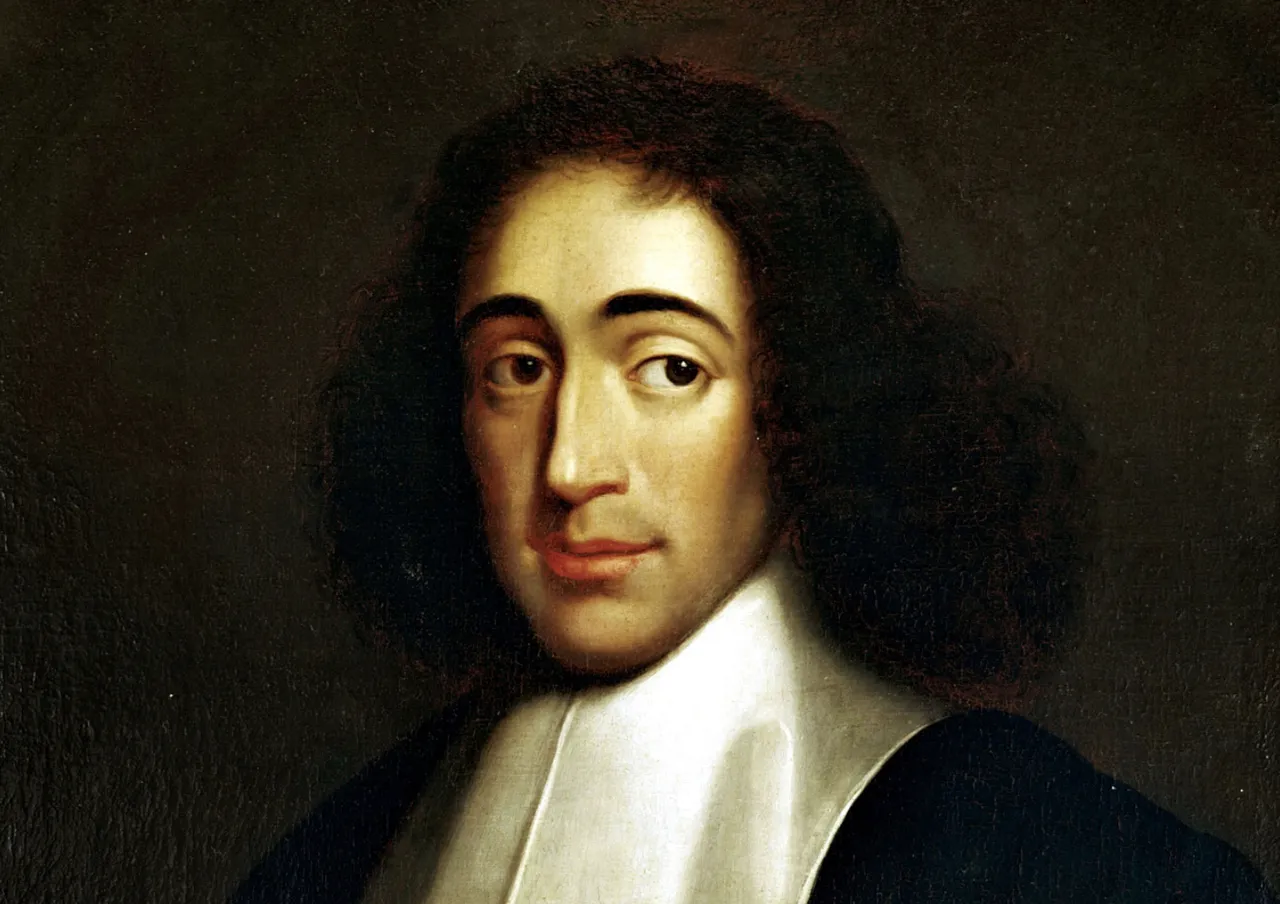So I have been reading the Ethics of Spinoza again.
Anyone here in the Proof of Brain Community ever read this book ? It is said to contain a Proof for the existence of “God” ( see below)
Apparently Baruch Spinoza (1632- 1677) is one of the most important Philosphers of the early modern Period...
And yet almost nobody has even heard of him ????
His thought combines a commitment to a number of Cartesian metaphysical and epistemological principles with elements from ancient Stoicism, Hobbes, and medieval rationalism into a nonetheless highly original system. His extremely naturalistic views on God, the world, the human being and knowledge serve to ground a moral philosophy centered on the control of the passions leading to virtue and happiness.... Of all the philosophers of the seventeenth century, Spinoza is among the most relevant today.
Source: https://plato.stanford.edu/entries/spinoza/
I have been reading and re -reading this book for many years trying to understand exactly what he is trying to say.
From what I can tell it is something like “if God is Infinite then everything is God.
Ie: God = Nature / Universe
Many people decided that Spinoza was an Atheist since the idea that Everything is God means that God does not exist.
Others consider Spinoza to be a Pantheist, which basically says that Everything is God (Divine)
It is also called “ Immanence”
Pantheism is the belief that reality is identical with divinity, or that all-things compose an all-encompassing, immanent god. Pantheist belief does not recognize a distinct personal god, anthropomorphic or otherwise, but instead characterizes a broad range of doctrines differing in forms of relationships between reality and divinity. Pantheistic concepts date back thousands of years, and pantheistic elements have been identified in various religious traditions. The term pantheism was coined by mathematician Joseph Raphson in 1697 and has since been used to describe the beliefs of a variety of people and organizations.
Source: https://en.wikipedia.org/wiki/Pantheism
This is also similar to Monism or Advaita Vedanta or Non-dualism... Everything is One.
The word Advaita is a composite of two Sanskrit words:
Prefix "a-" (अ), meaning "non-"
"Dvaita" (द्वैत), which means 'duality' or 'dualism'.
Existence monism posits that, strictly speaking, there exists only a single thing, the universe, which can only be artificially and arbitrarily divided into many things.
Substance monism asserts that a variety of existing things can be explained in terms of a single reality or substance. Substance monism posits that only one kind of stuff exists, although many things may be made up of this stuff, e.g., matter or mind.
Source : https://en.wikipedia.org/wiki/Monism
I became interested in Spinoza when I was reading an interview in Time where Albert Einstein was asked if he believed in God... and his answer was “ I believe in the God of Spinoza”
Time: http://content.time.com/time/subscriber/article/0,33009,1607298-2,00.html
So back to the Ethics of Spinoza and his Proof of God.
This book contains a series of definitions and propositions and the First part is called “On God” In propositions one through fifteen of Part One, Spinoza presents the basic elements of his picture of God. God is the infinite, necessarily existing (that is, self-caused), unique substance of the universe. There is only one substance in the universe; it is God; and everything else that is, is in God.
Proposition 1: A substance is prior in nature to its affections.
Proposition 2: Two substances having different attributes have nothing in common with one another. (In other words, if two substances differ in nature, then they have nothing in common).
Proposition 3: If things have nothing in common with one another, one of them cannot be the cause of the other.
Proposition 4: Two or more distinct things are distinguished from one another, either by a difference in the attributes [i.e., the natures or essences] of the substances or by a difference in their affections [i.e., their accidental properties].
Proposition 5: In nature, there cannot be two or more substances of the same nature or attribute.
Proposition 6: One substance cannot be produced by another substance.
Proposition 7: It pertains to the nature of a substance to exist.
Proposition 8: Every substance is necessarily infinite.
Proposition 9: The more reality or being each thing has, the more attributes belong to it.
Proposition 10: Each attribute of a substance must be conceived through itself.
Proposition 11: God, or a substance consisting of infinite attributes, each of which expresses eternal and infinite essence, necessarily exists. (The proof of this proposition consists simply in the classic “ontological proof for God’s existence”. Spinoza writes that “if you deny this, conceive, if you can, that God does not exist. Therefore, by axiom 7 [‘If a thing can be conceived as not existing, its essence does not involve existence’], his essence does not involve existence. But this, by proposition 7, is absurd. Therefore, God necessarily exists, q.e.d.”)
Proposition 12: No attribute of a substance can be truly conceived from which it follows that the substance can be divided.
Proposition 13: A substance which is absolutely infinite is indivisible.
Proposition 14: Except God, no substance can be or be conceived.
The book goes on to further elaborate on these Propositions but it basically always comes back to his main thesis that only God exists. There is nothing else. (Ein od Milvado)
Now if you believe that God is an old guy with a white beard in the Sky who created everything and waits to judge you at the end your life then this view of Spinoza’s may be a very difficult concept to grasp. But if you believe that “God” is a great Infinite Mystery that is Omnipresent ... everywhere, and within everything ... a mystical spirit that we are all a part of then this concept is not so strange.
Anyway I was curious if many people here in POB studied Spinoza in University and ever decided to subscribe to his Propositions ?
Source: http://www.ethicadb.org/pars.php?parid=1&lanid=3&lg=en

Source: https://en.wikipedia.org/wiki/Baruch_Spinoza